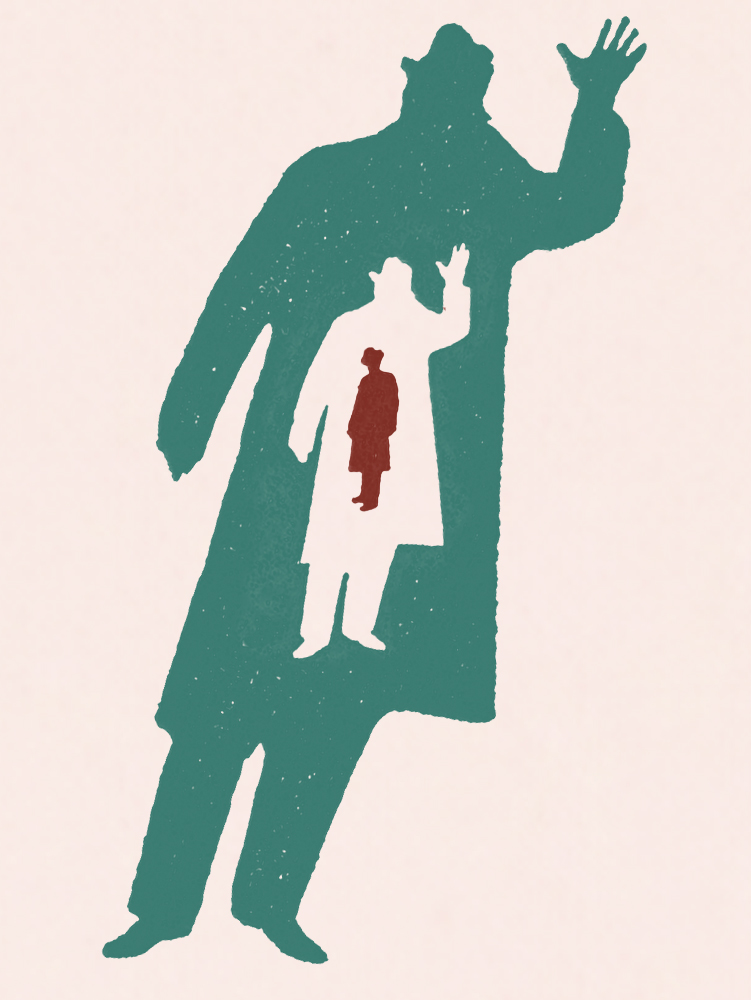Men Without Qualities

Olaf Scholz, Friedrich Merz, Robert Habeck. Have any three men ever presented a less inspiring electoral choice, or more perfectly reflected the exhaustion, stupidity, and delusion of a country’s political elite? Scholz, a grim-faced middle manager lacking in inspiration, skill, and distinction, implicated in a tax scandal that cost the state billions, never should have been Chancellor, and won election based on his opponents’ mistakes. Merz, an aging representative of West Germany’s unreconstructed 1980s business-oriented conservatives, is impulsive, short-tempered, and appears to believe he can single-handedly will the country back to the good old days in Bonn when men were men and Mercedes ran on diesel. Habeck, in his own quiet way the most contemptible of the three, is a costume-party intellectual obsessed with self-promotion, a self-proclaimed anti-racist whose most famous speech of the past four years characterized every Muslim migrant in Germany as a potential security threat guilty of antisemitism until proven innocent.
Germany has an aging population, terrible Internet, complex bureaucracy, broken trains, feudal and provincial universities. All its problems arise from the Scylla and Charybdis of austerity and racism.
None of these men have any solutions for the profound crisis facing Germany right now. The economic model of the Federal Republic — low wages, competitive prices on exports — has broken under the combined pressures of post-Covid inflation and a global population increasingly less likely to pay a premium for “Made in Germany.” Angela Merkel’s disastrous tenure as Chancellor maintained standards of living through the financial crisis but paid for it through an invisible austerity that choked off future investment. Germany has an aging population, terrible Internet, complex bureaucracy, broken trains, feudal and provincial universities. All its problems arise from the Scylla and Charybdis of austerity and racism.
Scholz and Habeck, who entered a coalition in 2021 to great fanfare and with the declared intention of making progress and transforming the country, have been in power for the past three and a half years, presiding over this general decline. To be fair to them, they were delivered a bad hand: these already-existing problems were made far worse by Russia’s invasion of Ukraine in early 2022. By that summer, it became clear that their third coalition partner, the neoliberal Christian Lindner, would rather govern against than with them: his party, the FDP, systematically delayed many of the government’s social policy initiatives (gender self-ID, a unified national rail ticket, dual citizenship, cannabis legalization) and blocked anything that required money to be spent. The coalition ran on fumes and mutually backstabbing press leaks, systematically discrediting anyone who participated in it. If Scholz and Habeck have ineffectually gestured at Germany’s problems, Merz simply denies them, proposing instead a program of disinvestment in green energy, a rolling back of Scholz and Habeck’s social liberalizations, and fat tax cuts for the rich. Despite Germany urgently needing more immigrants to support the welfare state and fill ever-increasing skilled labor shortages, all three men are campaigning for more controls on migration.
In this environment, it is unsurprising that the far right are rapidly increasing their support. Rather than moderating to fit the political consensus, they have instead moved the consensus in their favor. The mainstream political parties have helped them along. A supposedly center-left coalition government has spent the past year and a half merrily drumming up hatred of foreigners and undermining constitutional guarantees of free speech, expression, assembly, and demonstration: unilaterally closing state-funded art centers and social services organizations because of the private political views of their employees, firing and disinviting academics critical of the state, and sending riot cops out onto the street to unilaterally ban protest slogans, to prevent entire languages from being spoken on the street, and finally to beat protestors unconscious. Witness the AfD’s Beatrix von Storch, the granddaughter of Hitler’s finance minister who oversaw the theft of Jewish property in the Holocaust, thanking the Greens and Social Democrats for finally passing a resolution on antisemitism that focused on the real problem: the hordes of migrants importing Jew-hate into Germany. You actually can’t make this shit up.
Absent any plan to address them, Germany’s problems will grow worse: the rich richer, the poor poorer.
When Merz, three weeks before national elections, voted with that Nazi heiress and her party full of far-right extremists to arm Germany’s borders against asylum-seekers, muttering incoherently in parliament about entirely fictive “daily gang rapes” of German women by hordes of migrants like any other boomer uncle with a terminal case of Facebook Brain, the liberal German establishment gasped in horror. But for the past four years, they have been applauding precisely the same racist fever dreams, the same authoritarian crackdowns. To these liberals’ relief, the men without qualities will almost certainly form a government between them after these elections. Absent any plan to address them, Germany’s problems will grow worse: the rich richer, the poor poorer. A glimmer of hope emerges from a Left Party that seems to have found its backbone at the last possible moment. The Nazis are waiting in the wings.



